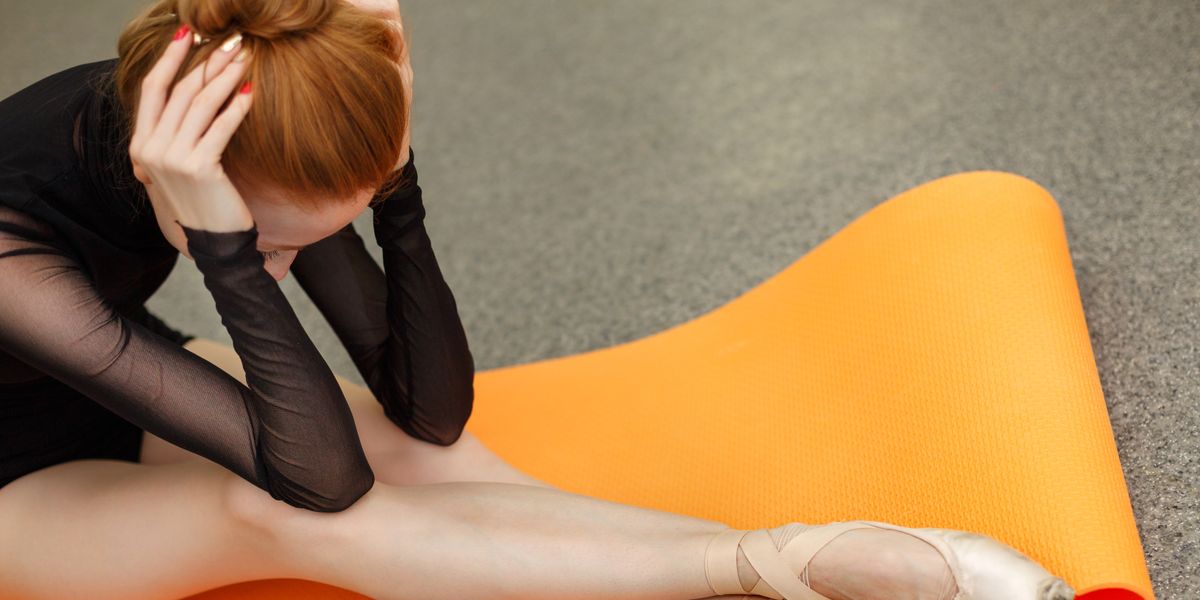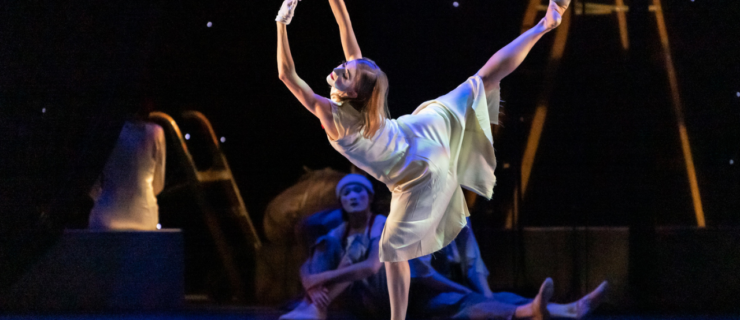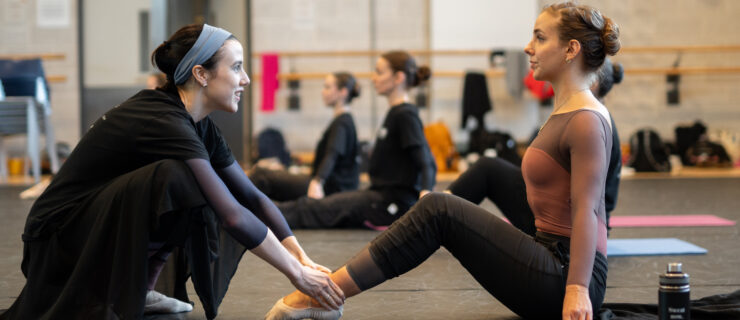How Can I Stay Motivated While Training at Home?
Ethan Ahuero was having a good year: he was in his first season dancing with Kansas City Ballet II and had been presented with the opportunity to choreograph on the second company. “The day before we shut down I had a rehearsal, and I was so happy,” Ahuero says. “The piece was coming together and this was the first time I felt really proud of my creative process.”
Suddenly, the coronavirus pandemic brought everything to a halt. With the company’s season cut short and the studios closed, Ahuero found himself attempting to continue dancing from home, with his choreography project put on hold. Like many other dancers around the world, Ahuero is dealing with disappointment while struggling to stay motivated.
Keeping up with daily ballet classes may feel difficult right now; inspiration can seem hard to come by when you’re following along on Zoom and short on space at home. Below are a few simple tips for finding new ways to stay motivated.
Spruce Up Your Dance Space
It can be frustrating to train at home when the space doesn’t feel like a studio. But changing the room up a little can help. Dancers are coming up with creative solutions: setting up mirrors for self-correction, laying down a square of Marley flooring, even building barres from PVC piping. Creating a makeshift “studio space” can make it easier to get your head into the zone.
Make a To-Do List
Try creating a list of what you want to achieve each week to help you stay on track. Dancers tend to be creatures of habit, so following a schedule can provide normalcy during a very unusual time. If creating a weekly schedule feels overwhelming, make a daily one instead. It’s fine to take things a day at a time!
“After feeling a bit lost and unmotivated, I decided to start making daily checklists of things to do so that I had some kind of set schedule each day,” says Anamarie McGinn, a company dancer with Orlando Ballet. “Even listing simple things like giving myself class, going for a walk or recording a live workout video for social media keeps me feeling motivated and helps pass the time.”
Try the Buddy System
It’s easier to stick to a schedule when you’re not alone in your efforts. “Dancers have talked to me about not wanting to do class and feeling unmotivated,” says Renee Aguilera, ballet mistress at Roanoke Ballet Theatre. “I recommend finding a ‘dance friend’ to act as an accountability partner that you can do class with,” she says. Reach out to a colleague or fellow student (or even a friend you made at a summer intensive) and agree to take a few classes together virtually. Having someone you trust and admire to keep you accountable can help you maintain class attendance and will likely strengthen your friendship, as well.
Get Specific
Zoning in on small goals can give you a sense of purpose. Without rehearsals or choreography projects to factor for, you have extra time to focus on specific weaknesses or details in your technique. Perhaps now is the time to concentrate on that lifted hip correction, or address the positioning and detail of your arms and fingers. Ahuero has begun cross-training and working on building muscle. Returning to the basics is so essential, yet frequently overlooked. When you go back to the studio you will be a more well-rounded dancer—and your teachers will be thrilled, as well!
Take the time to acknowledge that you cannot dance in the way you’re used to. Artists are shaped by their experiences, and the trials of this challenging period may even help you grow as a performer. Resilience is a wonderful (and necessary) skill for dancers to have. “Every hard situation brings something positive with it,” says McGinn. “For now I take one day at a time, knowing that when we all return to the stage it is going to be magic.”






